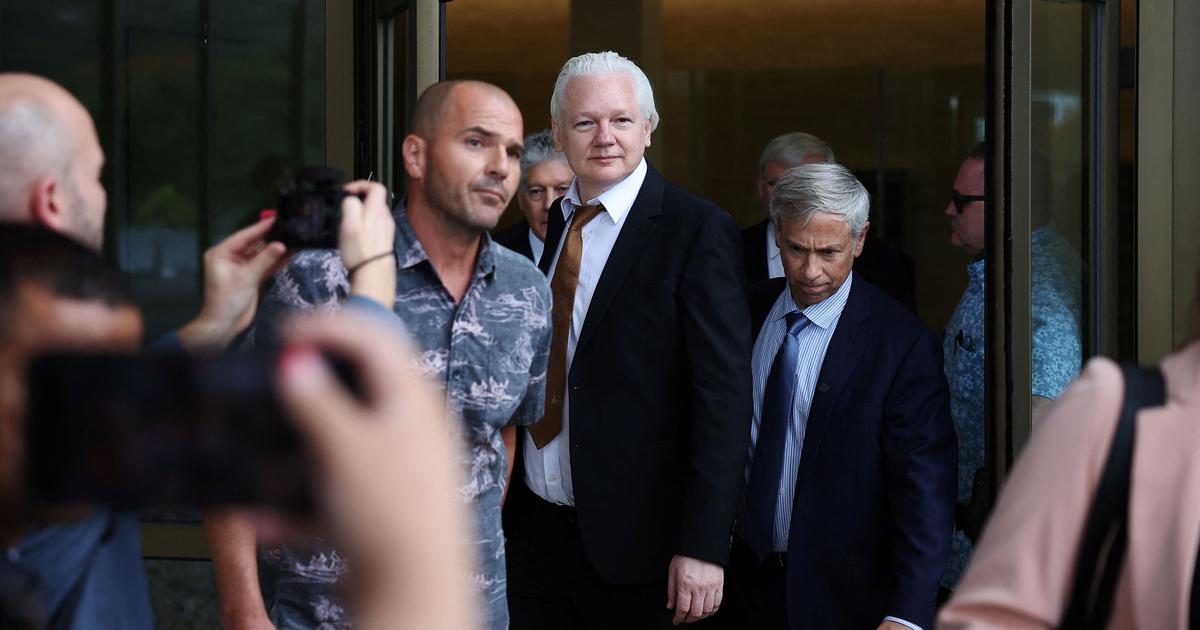After a legal saga spanning over five years, WikiLeaks founder Julian Assange has secured his freedom through a plea deal with the U.S. government. This development marks a significant turning point in a case that has sparked heated debate about press freedom and national security. Let’s delve deeper into the details of the plea deal, Assange’s release from prison, and the potential implications of this outcome.

A Long Road to Freedom: Assange’s Legal Battle Explained
Julian Assange, the Australian-born founder of WikiLeaks, found himself embroiled in a complex legal battle centered on the publication of classified U.S. documents by WikiLeaks in 2010. The documents, leaked by U.S. Army intelligence analyst Chelsea Manning, exposed details of U.S. military activities in Iraq and Afghanistan.
The U.S. government charged Assange with 17 counts of espionage and one count of computer misuse, accusing him of aiding in the theft of classified information. This move sparked a global debate: Was Assange a journalist protected by freedom of the press, or a criminal collaborator aiding in a national security breach?
Assange sought refuge in the Ecuadorian embassy in London in 2012, fearing extradition to the U.S. He remained there for seven years before being arrested by British authorities in 2019. His extradition case went through a series of legal challenges, with Assange’s supporters and legal team arguing that extradition would be a violation of his free speech rights.
In May 2024, Assange was granted an appeal against extradition. The U.S. government failed to guarantee Assange wouldn’t face harsh treatment in U.S. prisons, including potentially being denied First Amendment protections. This paved the way for negotiations between Assange’s legal team and the U.S. Department of Justice.
A Deal Struck: The Details of Assange’s Plea Agreement
The specifics of the plea deal haven’t been fully disclosed by WikiLeaks or U.S. authorities. However, based on the information available, we can gather the following:
- Plea Bargain: Assange has agreed to plead guilty to a single, unspecified criminal charge in exchange for his freedom. The nature of this charge remains unknown, but it likely falls short of the original 18 charges laid against him by the U.S.
- Time Served: Assange will not serve additional prison time. The five years he spent incarcerated in the U.K. are considered time served, allowing him to return to his native Australia.
- Reuniting with Family: With his release, Assange will be reunited with his wife, Stella Assange, and their children.
A Fight for Freedom of the Press? Reactions to Assange’s Release
Assange’s release has been met with mixed reactions:
- Supporters Celebrate: WikiLeaks and Assange’s supporters celebrate his freedom, viewing it as a victory for freedom of the press. They argue that Assange was targeted for exposing U.S. government wrongdoing and that his actions were journalistic in nature.
- Concerns Remain: Critics argue that Assange’s actions jeopardized national security and endangered lives. They question whether a plea deal sets a precedent for other whistleblowers who leak classified information.
- Future Implications: The long-term impact of Assange’s case on press freedom and government prosecution of whistleblowers remains to be seen.
WikiLeaks: A Legacy of Controversy
WikiLeaks’ publication of classified documents in 2010 sparked a global conversation about transparency and government accountability. However, the organization has also been criticized for its methods and for potentially endangering individuals named in the leaked documents.
As Assange seeks to rebuild his life, the debate surrounding WikiLeaks and freedom of the press is likely to continue.




